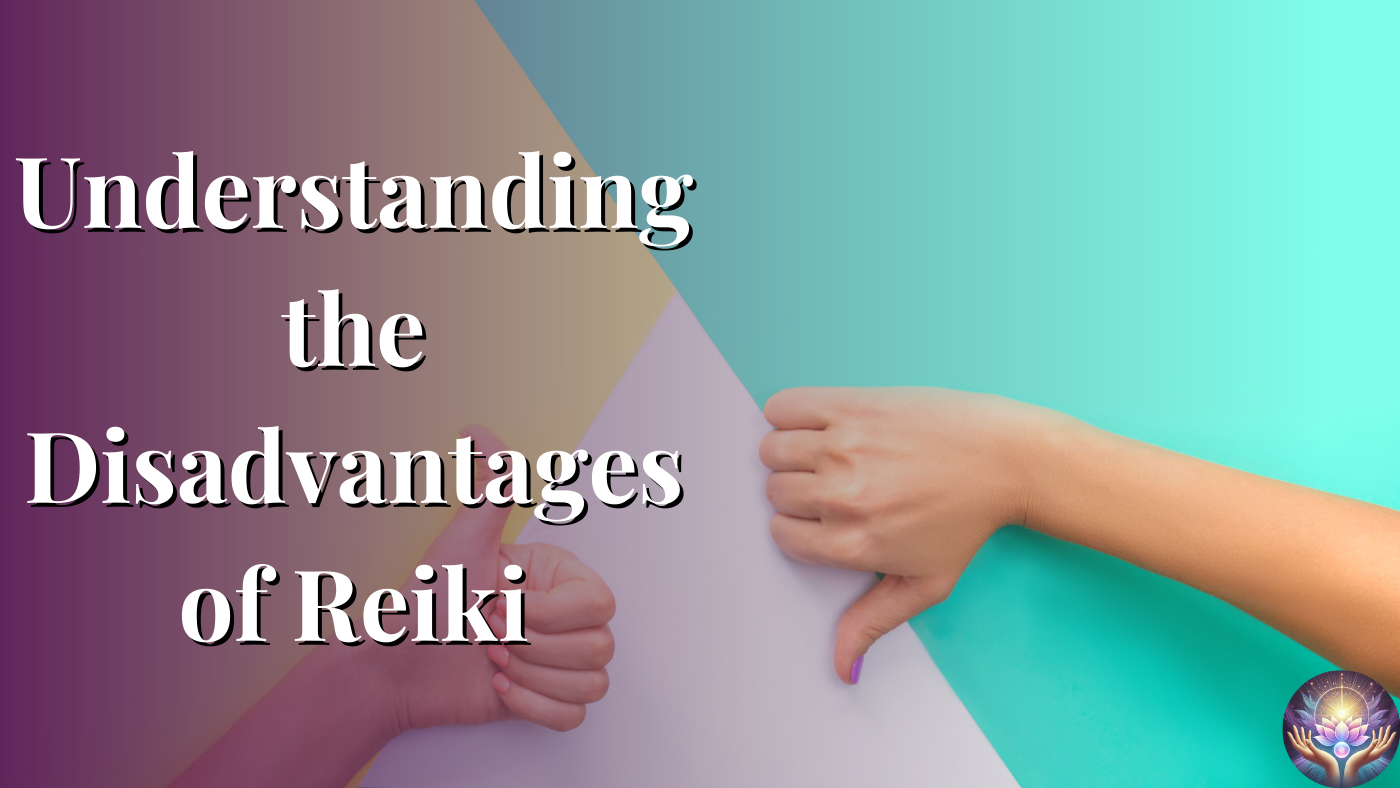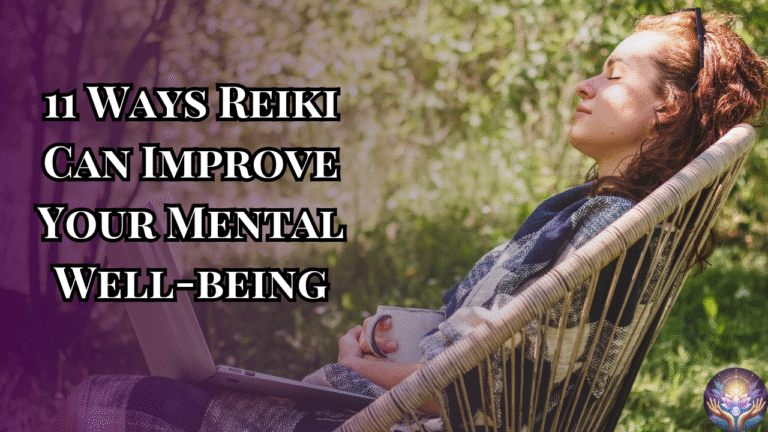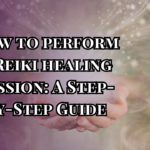Reiki is widely known as a gentle, energy-based healing practice that promotes relaxation and balance. However, despite its benefits, Reiki has its limitations and potential drawbacks. Understanding the disadvantages of Reiki can help you decide whether this alternative therapy is right for you.
While Reiki is generally safe, some individuals may experience discomfort, skepticism, or financial concerns regarding its effectiveness. In this article, we’ll discuss the potential risks, limitations, and common concerns surrounding Reiki.
Understanding the Disadvantages of Reiki

1. Lack of Scientific Evidence
One of the biggest concerns with Reiki is the lack of medical and scientific validation. While many people report positive experiences, there is little clinical evidence proving that Reiki has a direct healing effect on medical conditions. Since Reiki is classified as an energy-based therapy, it does not follow conventional medical research standards, making it difficult to measure its effectiveness.
2. Reiki Is Not a Medical Treatment
Although Reiki is often used as a complementary therapy, it should never be a substitute for conventional medical care. Reiki practitioners do not diagnose, treat, or cure diseases. Relying solely on Reiki for serious health conditions could delay proper medical treatment, which may worsen the condition over time.
3. Possible Side Effects
While Reiki is generally gentle, some individuals report feeling unwell after a session. This may include:
- Fatigue or drowsiness
- Emotional release (crying, sadness)
- Headaches or dizziness
- Temporary worsening of symptoms before improvement
These reactions are often part of the body’s energetic adjustment but can be unsettling for those new to Reiki.
4. Reiki Can Be Expensive
The cost of Reiki sessions varies depending on the practitioner and location, but it can be costly over time. Since Reiki is not typically covered by insurance, regular sessions may not be financially sustainable for everyone.
5. Placebo Effect Concerns
Skeptics argue that the benefits of Reiki may come from the placebo effect—meaning the perceived healing is due to belief rather than actual energy transfer. While this does not diminish the value of Reiki for some, it raises concerns about its true effectiveness for treating serious ailments.
6. Not Suitable for Everyone
Reiki is not recommended for:
- Individuals with severe mental health conditions (without professional medical guidance)
- Those who are highly skeptical and resistant to energy healing
- People expecting instant results or dramatic physical healing
- Those who need urgent medical intervention
While Reiki can support overall well-being, it may not be suitable for everyone’s needs.
7. Possible Fatigue or Discomfort After Sessions
While Reiki promotes relaxation, some people experience fatigue, dizziness, or mild discomfort after a session. This could be due to an energy shift in the body, emotional detoxification, or simply the body adjusting to the treatment.
8. Spiritual and Religious Concerns
Reiki is often linked to spiritual beliefs, which may not align with everyone’s values. Some religious groups question its legitimacy or discourage its practice, seeing it as conflicting with their faith.
9. Ethical and Professional Boundaries
Because Reiki involves hands-on or hands-above-body energy work, there’s a risk of boundary violations if practitioners do not act professionally. It’s important to choose a trusted, ethical Reiki master to ensure a safe experience.
FAQs About the Disadvantages of Reiki
Who should avoid Reiki?
Reiki is generally safe, but those with severe psychiatric conditions, individuals highly resistant to alternative therapies, or those expecting immediate medical cures should approach it with caution.
How much does a typical Reiki session cost?
Reiki sessions typically range from $50 to $150 per session, depending on the practitioner’s experience and location.
What not to do after Reiki?
After a Reiki session, avoid consuming alcohol, overexerting yourself, or engaging in stressful activities. Give yourself time to rest and integrate the energy shift.
Is Reiki medically approved?
No, Reiki is not medically approved as a standalone treatment. However, some hospitals and wellness centers offer it as a complementary therapy.
What happens to your body after Reiki?
Many people feel deeply relaxed, emotionally lighter, and more balanced. However, some may experience detox symptoms like fatigue, emotional release, or mild discomfort.
Why is Reiki so expensive?
Reiki pricing reflects the practitioner’s training, time, and expertise. Additionally, private sessions often include personalized energy work, contributing to higher costs.
Can you feel ill after Reiki?
Yes, some individuals experience a temporary “healing crisis”, where toxins release from the body, causing mild symptoms like nausea, headaches, or emotional sensitivity.
How long do the benefits of Reiki last?
The effects vary; some people feel benefits for a few days, while others experience improvements for weeks. Regular sessions tend to provide longer-lasting results.
How often should you do Reiki?
It depends on individual needs. Some people benefit from weekly sessions, while others may only need Reiki once a month for maintenance.
Are there risks to Reiki healing?
While Reiki is generally safe, risks include emotional release, discomfort, or financial burden from repeated sessions. It should not replace medical treatment for serious conditions.
Does Reiki actually work?
The effectiveness of Reiki is subjective. Many people report positive experiences, but there is limited scientific evidence to confirm its healing abilities beyond relaxation.
Why do I feel tired after Reiki?
Fatigue after Reiki is common as the body adjusts to energy shifts and releases tension. This is usually temporary and improves with rest and hydration.
Conclusion: Should You Try Reiki?
While Reiki offers relaxation and energetic balance, it is not a cure-all and comes with limitations. The disadvantages of Reiki include a lack of scientific validation, potential side effects, high costs, and its inability to replace medical treatment.
If you are open to energy healing and understand its complementary nature, Reiki can be a valuable wellness tool. However, it is essential to approach it with realistic expectations and continue seeking conventional medical care when necessary.








